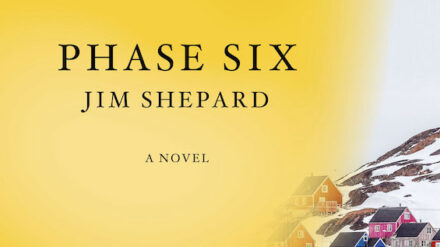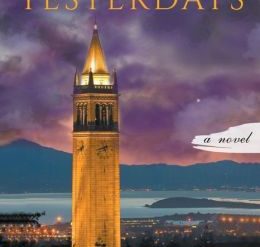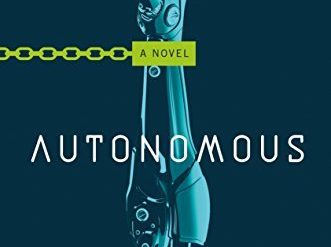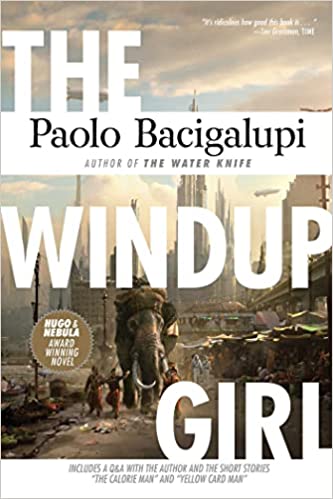
Of the thousands of science fiction novels I read in my youth, only a few stand out in my memory. I’ve included them in a separate post on the all-time best books in the genre. Now The Windup Girl joins them. It’s that good. It’s a convincing look at a future when bioengineering has gone wild. Like some other truly outstanding sci-fi novels, The Windup Girl won both the Nebula Award of the Science Fiction Writers of America and the Hugo Award voted by fans. And it’s no wonder. The author is the young American sci-fi master Paolo Bacigalupi.
Estimated reading time: 5 minutes
A future plagued by bioengineering and capitalism gone wild
The action takes place in Bangkok in the 23rd century. Sometime in the past, the oceans have risen twenty feet or more, and the city survives only because a visionary Thai king has built an enormous seawall, dikes, and pumps to hold back the waters of the annual monsoon. Genetic engineering has run amok around the globe. The Thai Kingdom is one of few countries, perhaps the only country, still resisting the “calorie companies,” the powerful food-exporting corporations headquartered in the American Midwest and in China. They’ve killed off virtually all traditional sources of food—and hundreds of millions of people—with genetically engineered plagues to increase their leverage in the market. Now the companies hungrily eye Thailand and its own independent success in creating new fruits and nightshades capable of resisting the ubiquitous plant-killers.
The Windup Girl by Paolo Bacigalupi (2009) 378 pages ★★★★★
Winner of the Hugo and Nebula Awards for Best Novel
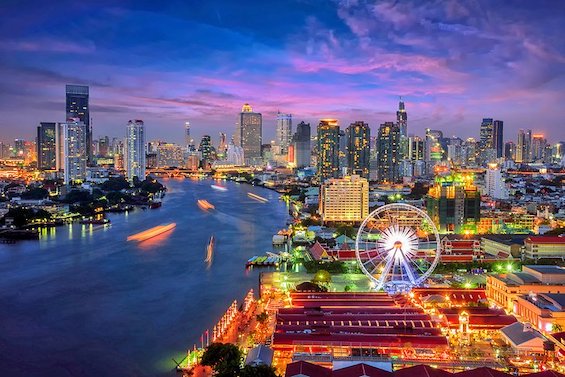
Can this be the best science fiction novel of recent years?
In this grim environment, so long removed from the 21st century, one character “wonders if it was really better in the past, if there really was a golden age fueled by petroleum and technology. A time when every solution to a problem didn’t engender another.”
Emiko, the “windup girl,” is herself a product of genetic engineering. She’s a “New Person,” a Japanese construct born in a test tube, bred in a creche, and trained to be an obedient secretary, interpreter, and lover to the businessman who buys her. Emiko is now stranded in Thailand by the businessman, who found it more cost-effective to buy a new windup girl back in Japan rather than pay her passage home. She now works as a despised prostitute in a Bangkok brothel.
A large case of memorable characters
Emiko is one of many memorable characters, each a finely rendered portrait of a human being tormented by personal demons, haunted by the ever-present ghosts of Thailand, and caught up in an ugly and unstable system. They include:
- Anderson Lake, an American calorie man who secretly represents AgriGen, one of the most powerful of the calorie companies
- Lake’s secretary-manager, Hock Seng, an old Chinese-Malayan business tycoon who barely escaped the ethnic cleansing campaign waged by Malayan “Green Headband” Muslims
- Captain Jaidee Rojjanasukchai, the celebrity “Tiger of Bangkok,” a fearless commander of the paramilitary “white shirt” troops of the Environment Ministry. He is charged with enforcing the genetic isolation of their country
- Jaidee’s sidekick, Lieutenant Kanya, a humorless woman who fights like a demon
- And the warring heads of the country’s two most powerful ministries, Environment and Trade, General Pracha and Akkarat
Hock Seng’s musings seem to sum up much of what transpires in this brilliant novel:
“All things are transient. Buddha says it is so, and Hock Seng, who didn’t believe in or care about karma or the truths of the dharma when he was young, has come in his old age to understand his grandmother’s religion and its painful truths. Suffering is his lot. Attachment is the source of his suffering. And yet he cannot stop himself from saving and preparing and striving to preserve himself in this life which has turned out so poorly.”
About the author
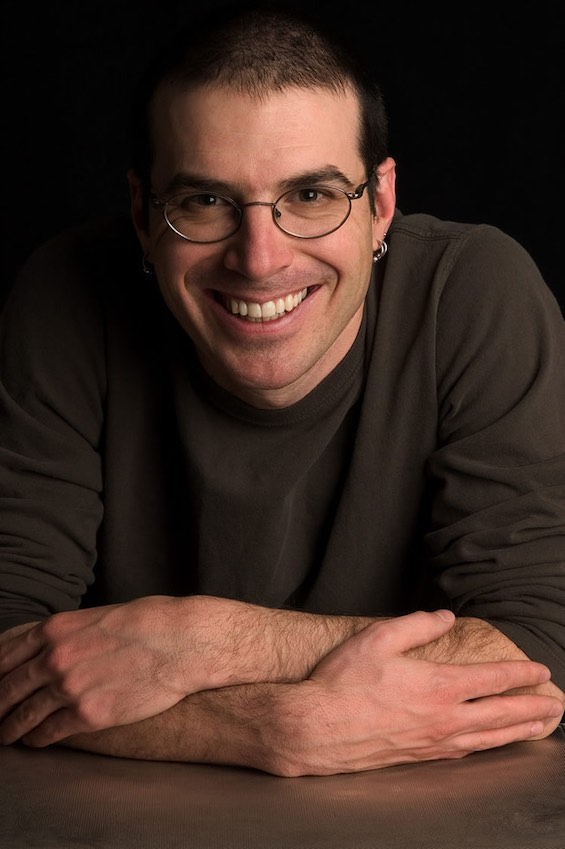
Paolo Bacigalupi has won just about every award offered in the science fiction and fantasy fields. He is the author of seven novels for adults and young adults (although it’s difficult to tell the difference). Four are standalones, including The Windup Girl. He also wrote the Ship Breaker Trilogy for young adults. (Ship Breaker was nominated for a National Book Award.) Bacigalupi was born in 1972 in Colorado, where he lives today. He is a graduate of Oberlin College with a major in East Asian Studies.
For related reading
This is just one of 5 thrilling science fiction novels by Paolo Bacigalupi. It’s also one of the many Good books about climate change I’ve reviewed here.
For more good reading, check out:
- These novels won both Hugo and Nebula Awards
- The ultimate guide to the all-time best science fiction novels
- 10 top science fiction novels
- The top 10 dystopian novels
- 10 new science fiction authors worth reading now
And you can always find my most popular reviews, and the most recent ones, on the Home Page.


